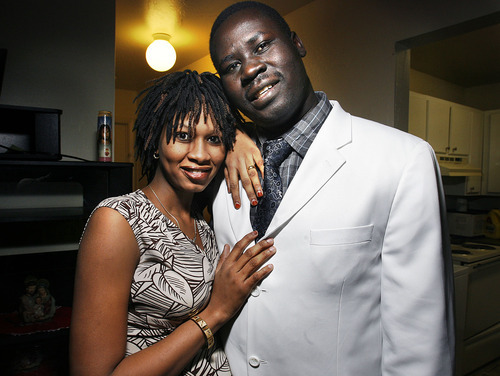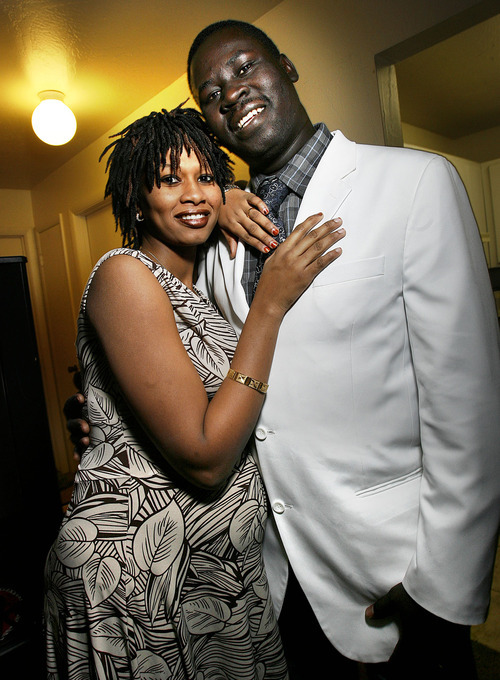This is an archived article that was published on sltrib.com in 2011, and information in the article may be outdated. It is provided only for personal research purposes and may not be reprinted.
The story is hard to tell.
But someday when his son is old enough to understand, Jongkor Kuot Mayol will sit down and start from the beginning.
"I will tell him everything that has happened in my life," the Salt Lake City man said of the conversation he envisions having with the boy his wife is expecting to deliver March 18. "I will tell him what happened to me in southern Sudan. I will tell him what happened to my mother — his grandmother. I will tell him how we have been hurt and humiliated by people who kill in the name of God."
And then it will be time to speak of what happened on Jan. 9, 2011 — the day that Mayol voted to set his people free.
Over the past week, thousands of southern Sudanese refugees living in the United States traveled to eight cities across the nation to vote in a referendum that is expected to free their homeland from the north and create the world's newest country. At the mission-styled St. James Parish in Glendale, Ariz., Mayol accepted a ballot from a yellow-vested poll worker and opened it to reveal two simple drawings: one of two hands clasped together and another of a single hand foisted in the air. The 28-year-old bus and taxi driver placed an ink-dipped finger in the circle below the solitary hand.
After a 20-year civil war that killed more than 2 million people, including Mayol's mother, few expressed any doubts that Sudanese from the long-suffering south would vote overwhelmingly in favor of separation. To be valid, the referendum needed 60 percent participation among registered voters. Officials said that mark had been well surpassed.
Voting ended Sunday and votes were being counted Monday.
Mohamed Ibrahim Khalil, the chairman of the south's referendum commission, told The Associated Press that 83 percent of those registered in the south had cast their votes. International observers, including former U.S. President Jimmy Carter, have praised the turnout and apparent fairness of the process.
Augustino Dut Kuol also traveled from northern Utah to Arizona to cast his ballot. The former "Lost Boy" was not surprised by the turnout, which exceeded 90 percent in the U.S. and seven other countries where voting was conducted.
Kuol said it wasn't just the promise of southern independence that drew refugees to the polls. "For me, you see — and I think this was the case for many other Sudanese — it as the first time in history for me to have an opportunity to vote as a Sudanese," he said. "Since I have been born, I had never even had a document showing that I am Sudanese."
Not, that is, until he received a card during the registration process that affirmed his nationality of origin. Just the acknowledgement that his vote counted in the nation he fled in the 1980s induced a sense of elation he'd never felt.
"After I cast my ballot I joined a group of Lost Boys and we were dancing and singing until I lost my voice," Kuol said. "We all met and recalled memories of being child soldiers. And we talked about the opportunity we now have had to cast our ballots instead of using bullets."
Now, Kuol said, it's time to make new memories. The University of Utah political science student wants to return to his new home nation, in one of the least-developed regions in the world. "My dream is to return so that I can bring back the knowledge I have learned," he said.
Mayol has another dream. He wants his son to have the opportunity to return to a nation in which he will be treated as an equal to everyone else.
"I want to tell him, 'This is what we have made for you and every generation to come, so that you will not be a second-class citizen in your own country,' " Mayol said. "That's what I will say."





